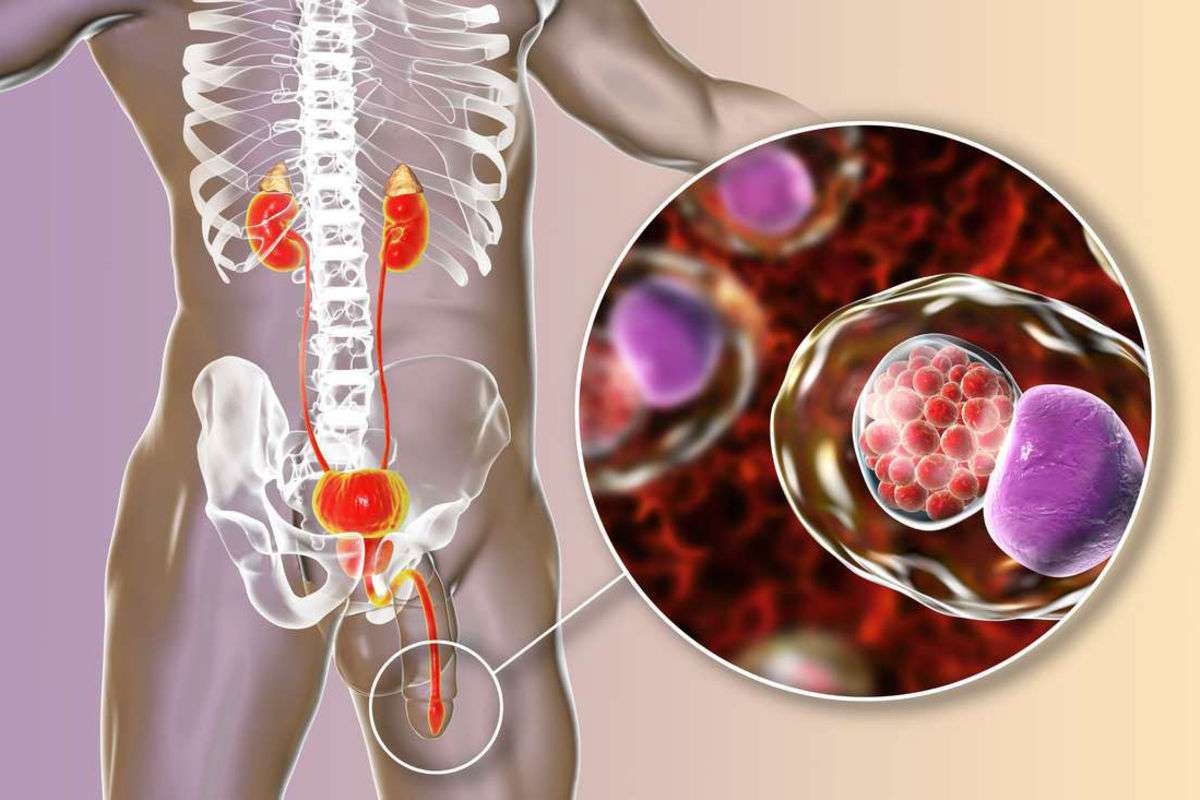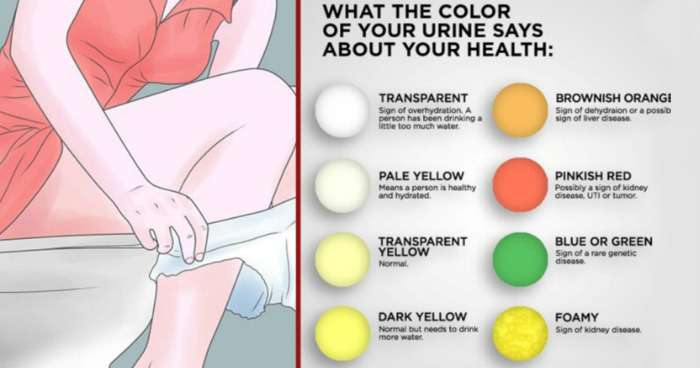Are There Other Ways To Treat Incontinence
Yes. Medicines or medical devices can treat some types of urinary incontinence. For example, estrogen cream to put in the vagina can be helpful for some women who have mild stress incontinence. Several prescription medicines are available to treat urge incontinence. For men, prescription medicine is available to shrink the prostate and improve flow of urine through the prostate. Talk to your doctor about possible medicine options for your type of incontinence.
In some cases, surgery may be an option. Treatment depends on what type of urinary incontinence you have and what is causing it.
When Should I See My Doctor
Most women who leak urine after childbirth find that it goes away in the first few weeks, as the stretched muscles and tissues recover.
However, for some women it can take months while other women find their pelvic floor never recovers fully.
If you are still experiencing leakage after 6 months, talk to your midwife or doctor. Dealing with it early on can reduce the risk of it becoming a life-long problem.
Stress incontinence is common, but many women are too embarrassed to talk about it. However, doctors, midwives, maternal and child health nurses and continence nurses are used to talking about it. If you are experiencing leakage, they will have suggestions that can help.
Avoid Excess Caffeine Intake
The effects of caffeine on the bladder are twofold. Caffeine irritates the muscles of the bladder, which can cause muscle spasms that increase the frequency and urgency of urination. Caffeine is also a mild diuretic, which means that it increases the amount of water released in urine.
It may be worth avoiding beverages that are high in caffeine, such as coffee, energy drinks, or green teas. Instead, opt for beverages that are decaffeinated or contain no caffeine, such as water or herbal teas.
Don’t Miss: What Can You Take For Bladder Pain
Losing Weight May Help To Improve Your Bladder Control
Excess weight puts extra stress on your pelvic floor muscles and contributes to an overactive bladder and loss of bladder control. If you can lose even a small amount of weight, it will help with bladder control.
The best weight loss plans are always those that set realistic goals combined with healthy eating habits and physical activity. Fad diets, although often successful short-term, rarely achieve sustainable weight loss, because once you tire of the diet, you often revert to ingrained unhealthy eating habits.
Check out our Obesity and Weight Loss guide for more information.
What Are The Causes Of Overactive Bladder

In many cases, the cause of OAB is not easily identifiable. OAB symptoms are more common as one gets older, but should not be considered an untreatable consequence of aging. Also, OAB can occur in young women as well. Some women will experience OAB after childbirth or pelvic surgery. Certain neurological conditions can cause OAB symptoms including multiple sclerosis, Parkinson’s disease, stroke, and spinal cord injury.
You May Like: Do You Bleed With A Bladder Infection
What The Caregiver Can Do
- Encourage or help the patient with appropriate skin care after using the bathroom. Use warm water and pat the area dry.
- Help the patient keep a diary that records specific foods or drinks that may affect how frequently the patient goes to the bathroom.
- Help the patient maintain a bladder or bowel plan.
- Encourage the patient to go to the bathroom at consistent time frames during the day, like after a meal.
- Encourage regular daily exercise, as permitted by the health care team.
What Does It Mean When You Have Frequent Urination
What is frequent urination? Frequent urination means that you have to urinate more often than you usually do. 1,3 This symptom can result from an overactive bladder or a weak bladder. Frequent urination is a symptom that affects both men and women. When a patient needs to urinate frequently at night, the medical term is nocturia.
Don’t Miss: How Can I Treat A Bladder Infection At Home
How Can Nerve Stimulation Help Overactive Bladder
There are several treatments that involve stimulating your nerves to help improve overactive bladder. Your nerves help communicate the message that your bladder needs to be emptied to your brain. By treating the nerves, your healthcare provider can improve your bladder control. Nerve stimulation is a reversible treatment that is considered when conservative treatments have not worked or have not been tolerated. Conservative treatments include behavioral therapies and medications.
There are several types of nerve stimulation treatments. These can include:
What Causes Bladder Weakness
Bladder weakness usually occurs when the muscles in the pelvic floor or sphincter have been damaged or weakened.
Both men and women have a pelvic floor. It is made up of layers of muscles which hold the bladder and bowel in place and help to stop leaks. The sphincter is a circular muscle that goes around the urethra and squeezes as the bladder fills up to create a seal so that urine cant leak out.
In women, these muscles can be weakened during pregnancy by the extra weight and natural hormonal changes. Childbirth can cause more problems especially if delivery is prolonged or the baby is large. Forceps and ventouse assisted deliveries may increase the risk of damage, muscle tearing or episiotomies can cause further damage.
Some women develop stress urinary incontinence after the menopause. This is because the pelvic floor becomes weaker following hormone changes within the body. Even before the menopause, some women may notice that they have a weaker bladder than normal in the week before a period. Stress urinary incontinence may occur after a hysterectomy and also after operations on the bladder.
People who have been constipated for a long time or have a chronic cough may also be prone to stress urinary incontinence. Men can develop stress urinary incontinence if they are experiencing problems related to their prostate gland or post prostate surgery.
Read Also: How Long Does Overactive Bladder Last
What Else Causes Bladder Control Problems In Women
Certain life events and health problems can lead to stress incontinence in women by weakening the pelvic floor muscles
- pregnancy and childbirth
- menopause
Weak pelvic floor muscles can make it hard for your bladder to hold urine in during stress incontinence. Stress incontinence occurs when an actioncoughing, sneezing, laughing, or physical activityputs pressure on your bladder and causes urine to leak. A weak pelvic floor can also cause fecal incontinence, or bowel control problems.
What Causes Overactive Bladder
An overactive bladder can be caused by several things, or even a combination of causes. Some possible causes can include:
- Weak pelvic muscles: Pregnancy and childbirth can cause your pelvic muscles to stretch and weaken. This can cause the bladder to sag out of its normal position. All of these factors can cause leakage.
- Nerve damage: Sometimes signals are sent to the brain and bladder to empty at the wrong time. Trauma and diseases can cause this to happen. These can include:
- Pelvic or back surgery.
- Stroke.
Often, there may be no specific explanation for why this is occurring.
Read Also: Bladder Control Products By Mail
Incontinence And Alzheimers Disease
People in the later stages of Alzheimers disease often have problems with urinary incontinence. This can be a result of not realizing they need to urinate, forgetting to go to the bathroom, or not being able to find the toilet. To minimize the chance of accidents, the caregiver can:
- Avoid giving drinks like caffeinated coffee, tea, and sodas, which may increase urination. But dont limit water.
- Keep pathways clear and the bathroom clutter-free, with a light on at all times.
- Make sure you provide regular bathroom breaks.
- Supply underwear that is easy to get on and off.
- Use absorbent underclothes for trips away from home.
For more ways to deal with incontinence and other common medical problems in someone with Alzheimers, visit Alzheimers Disease: Common Medical Problems.
What Behavioral Changes Can I Make To Help With Overactive Bladder

There are many techniques and changes to your typical behavior that you can try to help with an overactive bladder. These can include:
Keeping a log: During a typical day, write down your fluid intake, the number of times you urinate, the number of accidents and when they occur. Make a note about what happened when the accident happened, like when you:
- Cough.
- Laugh.
- Were unable to reach the bathroom in time.
Monitoring your diet: Eliminate or decrease foods or beverages that may worsen your bladder symptoms. These could include:
- Tea.
- Spicy and acidic foods and drinks.
- Foods and drinks that contain artificial sweeteners.
Maintaining bowel regularity: Constipation can place added pressure on the bladder and have a negative effect on your bladder function. By keeping healthy bowel habits, you may be able to avoid constipation and help to lessen bladder symptoms. The following are some suggestions for maintaining bowel regularity:
- Increase your fiber intake by eating foods like beans, pasta, oatmeal, bran cereal, whole wheat bread, and fresh fruit and vegetables.
- Every morning, take 2 tablespoons of this mixture: 1 cup apple sauce, 1 cup unprocessed wheat bran, and ¾ cup prune juice.
- Exercise regularly to maintain regular bowel movements.
Maintaining a healthy weight: Being overweight can add pressure on your bladder, which may contribute to bladder control problems. If you are overweight, weight loss can reduce the pressure on your bladder.
Don’t Miss: How To Help A Weak Bladder Naturally
More Frequent Urinary Tract Infections
A weak pelvic floor can be mistaken for a UTI, but sometimes a weak pelvic floor can also increase the likelihood that you will experience UTIs, says Dr. Hesham. Signs that you may have a UTI include feeling an urge to pee, experiencing a burning sensation when you pee, and finding blood in your urine.
Treatment Of Excessive Or Frequent Urination
The best way to treat excessive urination is to treat the underlying disorder. For example, diabetes mellitus is treated with diet and exercise plus insulin injections and/or drugs taken by mouth. In some cases, people can reduce excessive urination by decreasing their intake of coffee or alcohol. People troubled by awakening at night to urinate may need to reduce fluids before bedtime.
Children with nighttime urination can also be managed with motivational therapy, in which they are rewarded for practicing behaviors that reduce bedwetting . If motivational therapy does not work, urination alarms may then be tried. If other measures fail, doctors may prescribe oral desmopressin to control excessive thirst and urination
Doctors may also adjust the dosage of diuretics that may contribute to excessive urination. Adults with nocturia can be treated with bladder relaxants and medications to prevent bladder spasms. Resistant cases can also be treated with desmopressin.
You May Like: Not Being Able To Hold Bladder
Read Also: Clamp Foley For Bladder Training
Why Do I Have Pain In My Lower Abdomen When I Pee
Acute Retention of Urine. If you are having frequent urination and lower abdominal pain, please know it is save to be considered due to cystitis until proven otherwise. Cystitis or urinary tract infection is the most common cause of abdominal pain and frequent passing of urine with or without burning sensation.
Managing Bladder Or Urinary Incontinence
Sometimes urinary incontinence can last a short time, depending on what’s causing it. But sometimes incontinence can be long-term and uncomfortable, making some everyday activities difficult to manage.
Your health care team will ask you questions to determine the type of bladder incontinence you might have. Then, you might need tests to verify the type and learn the cause of it which will help them know the best way to manage it.
- Pelvic floor muscle strengthening may be recommended. A physical therapist that specializes in pelvic floor muscle exercises can help. This might help muscle strength and bladder control get better by doing exercises that tighten and relax muscles that control the flow of urine.
- Bladder training canhelp manage how often you need to urinate throughout the day, by assigning certain time intervals to empty your bladder.
You May Like: Natural Remedies To Cure Bladder Infection
Pelvic Floor Exercises Can Help Immensely
You cant see your pelvic floor muscles however, just like other muscles in your body they lose their strength if they are not put to use.
Pelvic floor exercises help strengthen the pelvic floor when done consistently at least twice a day. How are they done?
- Imagine you are holding back gas or urine.
- Squeeze and lift the rectal area without tightening your buttocks or belly. Try and hold it for a count of three before relaxing. Repeat this cycle 10 times. Do 10 sets of Kegel exercises, at least 3 times a day.
- Increase your contractions as your doctor recommends.
- Do not hold your breath when you do Kegel exercises. Keep your stomach, back, and leg muscles relaxed.
- Don’t use Kegel exercises to start and stop your urine stream which can lead to incomplete emptying of the bladder and an increased risk of a urinary tract infection.
Review our information about Kegel exercises for both women and men to learn more about the techniques.
What Causes Low Back Pain And Vaginal Discharge
You may experience changes in your discharge due to menstruation or hormonal birth control. Here are eight possible causes of low back pain and vaginal discharge. A urinary tract infection can occur in any part of the urinary tract. Bacteria cause the vast majority of UTIs. Fungi or viruses can also cause UTIs.
Don’t Miss: Can You Bleed If You Have A Bladder Infection
Urinary Incontinence In Older Adults
Urinary incontinence means a person leaks urine by accident. While it may happen to anyone, urinary incontinence is more common in older people, especially women. Incontinence can often be cured or controlled. Talk to your healthcare provider about what you can do.
What happens in the body to cause bladder control problems? The body stores urine in the bladder. During urination, muscles in the bladder tighten to move urine into a tube called the urethra. At the same time, the muscles around the urethra relax and let the urine pass out of the body. When the muscles in and around the bladder dont work the way they should, urine can leak. Incontinence typically occurs if the muscles relax without warning.
Overactive Bladder At Night

If you find that you wake up to urinate more than one time per night, you may have a condition called nocturia, or overactive bladder at night. Nocturia isnt the same as overactive bladder. In fact, some people who experience no OAB symptoms during the day can still have nocturia.
Nocturia is more common in people over age 60, but one in three adults over 30 need two or more trips to the bathroom each night. Most adults can sleep six to eight hours without waking up. Others may only need to wake up once.
If you require more bathrooms breaks during your slumber, you may be experiencing overactive bladder at night.
Read Also: How To Empty Bladder Without Catheter
What Can I Do To Prevent Bladder Problems After Birth
There are some simple steps you can take during pregnancy to help prevent incontinence.
- Drink 6 to 8 cups of fluid a day, unless your doctor tells you otherwise. Avoid drinks containing sugar or caffeine, as these can irritate the bladder.
- Eat a high fibre diet with 2 pieces of fruit, 5 serves of vegetables and 5 serves of cereals/bread per day.
- Make sure you have a healthy weight.
- Stop smoking.
Revealed: Unusual Causes Of A Weak Bladder And How To Solve Them
Medically reviewed
All of Healthily’s articles undergo medical safety checks to verify that the information is medically safe. View more details in our safety page, or read our editorial policy.
Do you feel like you have a weak bladder? You may leak a bit of pee when you laugh, or sometimes the urge to pee comes on so suddenly that you wet yourself. This loss of bladder control is medically known as urinary incontinence, and its a common problem.
Its particularly common in women, due in part to differences in the female body and things like childbirth and the menopause affecting your bladder and pelvic muscles (read more about common types of urinary incontinence in women.
But there are also some lesser-known causes of a weak bladder. If you dont know why its happening, you may feel frustrated. But there is help available. So read on to learn about some of the more unusual causes of a weak bladder and what you can do about it.
Read Also: Medication For Overactive Bladder In The Elderly
Changes In Your Reproductive System
Bladder pain in women may also be a result of thinning vaginal skin, says Karl Luber, MD, a urogynecologist and a founder of the female pelvic medicine and reconstructive surgery fellowship program at UCSDKaiser Permanente in San Diego.
This is called atrophy and its most common when menopause deprives the tissues surrounding the vagina of estrogen, he explains. Oral estrogen doesnt help, but a vaginal estrogen cream may ease symptoms.
Talking with your doctor about bladder pain and discomfort can help determine where the problem really lies, Dr. Luber says.
RELATED: 8 Rules for a Healthy Vagina